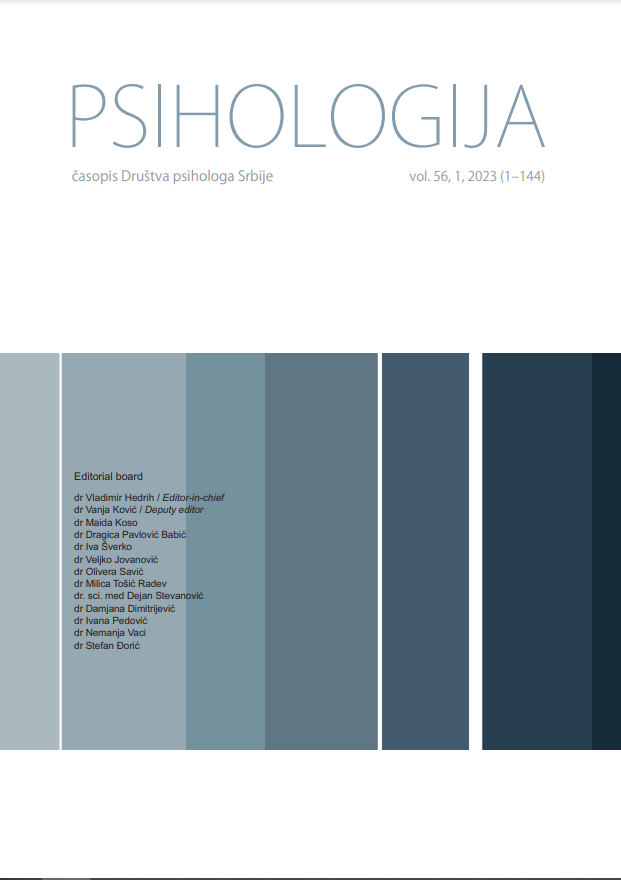Implicit theories of intelligence, morality, and the world in a sample of Russian perfectionists
Implicit theories of intelligence, morality, and the world in a sample of Russian perfectionists
Author(s): Natalia Rudnova, Marina Sheveleva, Tatiana PermyakovaSubject(s): Social psychology and group interaction, Cognitive Psychology, Personality Psychology
Published by: Društvo psihologa Srbije
Keywords: implicit theories; adaptive perfectionists; maladaptive perfectionists; non-perfectionists
Summary/Abstract: he main goal of the current study is to examine differences across perfectionists’ profiles regarding implicit theories of intelligence, morality and the world. The sample included 202 Russian students, age-range 18–24 (M = 19.62, SD = 1.15), 40% male. Short Almost Perfect Scale and Implicit Theories of Intelligence, Morality, and the World Questionnaire was used for data collection. Correlation and regression analysis, latent profile analysis, and the Student’s t-test were conducted. The study results show that adaptive perfectionists tend to hold the entity theory about the world and the incremental theory of intelligence. The world for them is a structured place with fixed rules in which they can improve their cognitive skills, correct mistakes and grow up in experiences. Maladaptive perfectionists tend to hold only the entity theory of morality, so they believe in rigid moral principles. Non-perfectionists tend to hold the entity theory of intelligence and incremental theory of morality and the world. They believe that intelligence has limits, the world is a chaotic and unexpected place and morality is fluid and unstable. The findings are presented in the context of defining the differences between three types of perfectionists in terms of their views on the ability to modify cognitive capabilities, moral principles, and the world in general.
Journal: Psihologija
- Issue Year: 56/2023
- Issue No: 1
- Page Range: 1-14
- Page Count: 14
- Language: English, Serbian

